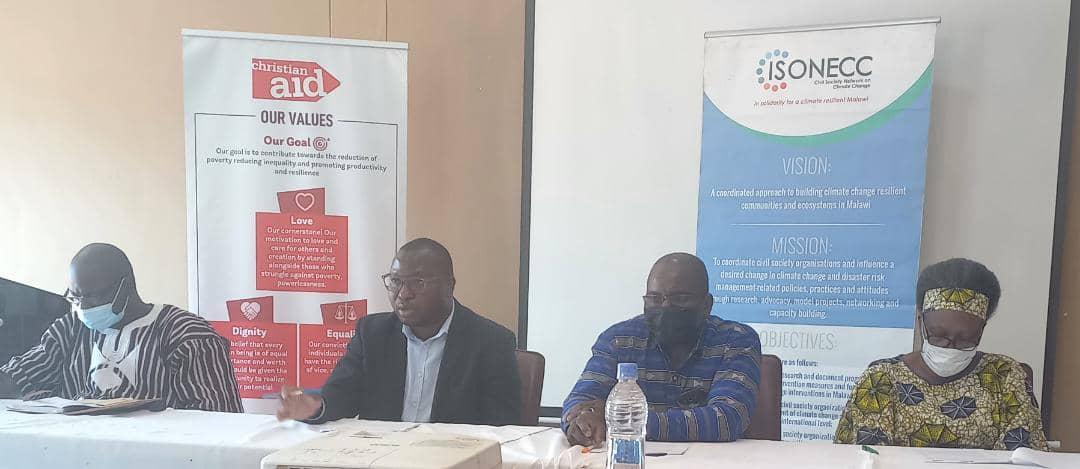Africa-Press – Malawi. The country’s civil rights groups in the energy sector have backed unbundling of Electricity Supply Corporation of Malawi (ESCOM) into three agencies Electricity Generation Company of Malawi (EGENCO) and Power Market Limited (PML).
But the civil rights have observed with concerns on politicization of the reforms at ESCOM arguing that some individuals are sabotaging the process. Addressing the news conference on Monday, September 26, 2022 Civil Society Network on Climate Change (CISONECC)’s National Coordinator Julius Ng’oma hinted that there is too much politics at ESCOM which is suffocating the reforms.
Ng’oma believes that parent ministry of energy has great role of making sure that the reforms at ESCOM bears fruits. He told the news conference that there is lack of prioritization of the Energy sector in the National Budget allocations despite it being a catalyst of social economic development.
Below is the released energy sector status quo and development in Malawi that needs President Lazarus Chakwera’s Tonse administration to pay attention.
PRESS STATEMENT ON THE ENERGY SECTOR STATUS QUO AND DEVELOPMENT IN MALAWI
The Civil Society Network on Climate Change (CISONECC), a non-state actor think-tank from 23rd – 24th August, 2022, convened a Stakeholders’ Engagement on Promotion of Sustainable and Clean
Energy in Malawi to discuss issues affecting the smooth development of the Energy sector in Malawi. The meeting brought together stakeholders from various sectors. These included among others;
Academia, Civil Society, Media, the Private Sector, Community representatives as well as Government Ministries of Energy, Natural Resources and Climate Change, Finance and parastatals that included
the Electricity Generation Company of Malawi (EGENCO) and Malawi Energy Regulatory Authority (MERA). The stakeholder engagement process occurred at a time when access to electricity
countrywide stands at only 12% out of a population of 18 million with frequent notices of power outages being publicized in the press almost on a weekly basis.
This is happening seven months after Kapichira Hydro Power Plant was affected by storm Ana that damaged the main dam fuse plug resulting in the flow regime of the Shire River to change.
During the engagement process stakeholders acknowledged the following in the energy sector in Malawi; The lack of knowledge among the citizenry of renewable energy sources which affects their
adoption The limited access to clean, affordable and sustainable energy sources in the country that is exacerbating environmental degradation The impact that climate related disasters such as Tropical Storm Ana has had on the already
struggling Energy sector The lack of prioritization of the Energy sector in the National Budget allocations despite it being a catalyst of social economic development
The lack of transparency and accountability in the utilization of resources within the Energy
sector The misuse of already inadequate funds within Government of Malawi’s Energy agencies such as ESCOM The exorbitant prices of alternative energy sources such as Liquified Petroleum Gas (LPG);
solar products; that restrains average Malawians from accessing and adopting them The lack of inspection and strict measures to curb the influx of sub-standard renewable energy
products on the market including those that pass through our borders at entry points Having deliberated on the aforementioned issues, we hereby make the following recommendations to
Government and other stakeholders that support the development of Malawi’s Energy Sector: as the Malawi Vision 2063 and the energy advancement strategies outlined in the National
Energy Policy and Malawi Renewable Energy Strategy; they all require adequate resources to be implemented and achieve the Sustainable Energy Access for All target come the year 2030.
by EGENCO and delays in extension of the national grid to remote areas, electricity has become but a luxury for a selected few. It is therefore paramount for Government to promote
establishment of mini-grids by IPPs and to ensure favorable conditions are put in place for mutual benefit of the power producer and supplier to support sustainability.
Stakeholders must work together to enhance people’s knowledge on these renewable energy alternatives and technologies; eliminate the myths that affect adoption so that we save our
environment from further degradation. As stakeholders in the Energy sector, we will continue to support Government in the development of the sector until all Malawians have access to clean, sustainable and affordable energy.
For More News And Analysis About Malawi Follow Africa-Press






